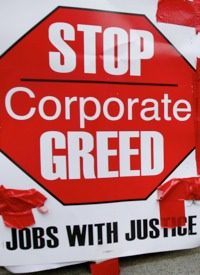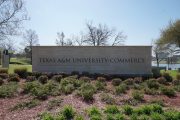
The college, which is a Christian higher education facility located in Grantham, Pennsylvania, described Piven as a “Distinguished professor of political science and sociology at the graduate school and University Center of the City University of New York.” Piven is well-known for her radicalism and continued push for a nationwide embrace of extreme leftism.
Piven is famous for her 1960s Cloward-Piven Strategy, named after Piven and her husband Richard Andrew Cloward, of “deliberate economic sabotage.” The Cloward-Piven Strategy sought to “hasten the fall of capitalism by overloading the government bureaucracy with a flood of impossible demands, thus pushing society into crisis and economic collapse.”
More recently, Piven’s radicalism was made clear in her attendance at the Days of Rage protests, as well as through an article she wrote for The Nation back in January, entitled “Mobilizing the Jobless,” wherein she wrote:
So where are the angry crowds, the demonstrations, sit-ins and unruly mobs? After all, the injustice is apparent. Working people are losing their homes and their pensions while robber-baron CEOs report renewed profits and windfall bonuses. Shouldn’t the unemployed be on the march? Why aren’t they demanding enhanced safety net protections and big initiatives to generate jobs?
She is also an honorary chair of the Democratic Socialists of America, and has worked closely with Cornel West and AFL-CIO president Richard Trumka.
Piven has been targeted by conservative pundit Glenn Beck as “an enemy to the Constitution.” Beck carefully outlined all of the elements of the Cloward-Piven Strategy on his popular Fox News program and often provided detailed updates of her radicalism, raising her to a level of notoriety amongst conservatives that would otherwise not have been achieved.
It certainly is not difficult to understand why Piven’s visit was so controversial.
Messiah College made clear that the extended invite to Piven does not indicate that the college “endorses the ideas or opinions expressed,” but instead “views them as an educational opportunity” for the students. According to the school:
The College takes care to provide a context in which students, faculty, and the general public will be able to reflect critically on ideas and opinions that are put forward. We do this so our students and others may be better positioned to serve Christ and the world in which they live, spurring them on to maturity of intellect, character and Christian faith as is required by our stated mission.
In the days leading up to Piven’s visit, there were some clashes between the school’s administrators and the students. PennLive.com reports:
The school removed posters advertising her talk before high school students and their parents came on Monday for daylong campus tours.
Officials said they didn’t want prospective students and their families to see the posters and ask questions that the staff couldn’t answer. Officials also said the expected turnout was so great, they didn’t want to draw more attendees.
Some students said Messiah couldn’t have it both ways. It couldn’t bring in Piven and then distance itself from criticism. They wrote announcements of Piven’s appearance in chalk on campus walkways, but college staff washed them away.
Nearly 300 people were in attendance for Piven’s appearance, forcing the university to open up another room where visitors could watch the speech from a projector.
Piven began her lecture by remarking on the amiable treatment she received on campus from both students and faculty. “I didn’t know what to expect,” said Piven. “Was it going to be something like Bob Jones University?” she joked. “You know, I’ve had a great day. I think I have a lot in common with a lot of people in this room.”
Piven then regaled her observers with her version of the American Revolution, asserting that the Founding Fathers had their own selfish interests in mind when they led the revolution, and virtually took advantage of the laymen farmers because they needed their fighting power.
Piven also declared that the United States is in fact a democracy, which she defines as the idea that “the people will rule over their communities.” She contends that the definition has since been watered down to mean instead that the government is accountable to the people. Piven also bemoaned the notion that some Americans refute the claim that the United States is in fact a democracy, not a republic. She believes these particular Americans are handing over their rights when they make such assertions.
She also took the opportunity to address a variety of different movements, including the Tea Party movement, the Occupy Wall Street movement, and the progressive movement, the latter two of which she clearly maintained a significantly more positive perspective. She accredited the Occupy Wall Street movement with effectively targeting the “source” of America’s economic woes, and said that the progressive movement was a “great” one, while asserting that the Tea Party movement is a group of “anxious” people.
Throughout the course of her speech, Piven provoked quite a few loud grunts, sighs, and remarks from the crowd, as well as some easily detected eye-rolling. For example, when Piven accused Tea Partiers of being driven by racism against a black President, those in the main auditorium, as well as those in the other rooms, articulated their opposition to her remark.
The most glaring displays of opposition, however, came during the question/answer session. Students read Piven’s own quotes back to her, forcing her to account for her own statements.
For example, Messiah student Phil Strunk questioned Piven on her article calling for unemployed workers to stage protests on the same scale as the riots seen in Greece last year.
Strunk told Piven, “It kind of sounded like a declaration of violence to me.” She replied, “I believe in nonviolence. I don’t think that breaking a glass window is the worst crime in the world. But I’m against it … because people will say, ‘Violence, violence, violence,’ and ignore the violence on the street, of [people] losing their homes, being hungry.”
Another student questioned the validity of Piven’s claims that the Tea Party movement is motivated by racism when the Tea Party movement has reportedly embraced Republican presidential contender Herman Cain, who is African-American. To that, Piven stumbled a bit before indicating that Cain is not a viable candidate and therefore welcomed by the movement. Likewise, she contends that because Cain is antithetical to President Obama, he is a welcome element to the Tea Party.
Overall, those in attendance effectively asserted their opposition to Piven while remaining respectful. On Wednesday at 4 p.m. students will be invited to discuss Piven’s lecture without her being present, which may prove to be a bit more boisterous.
Photo: AP Images




